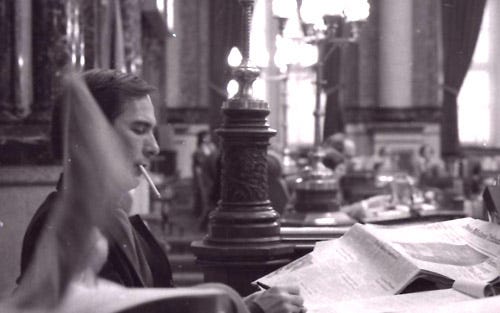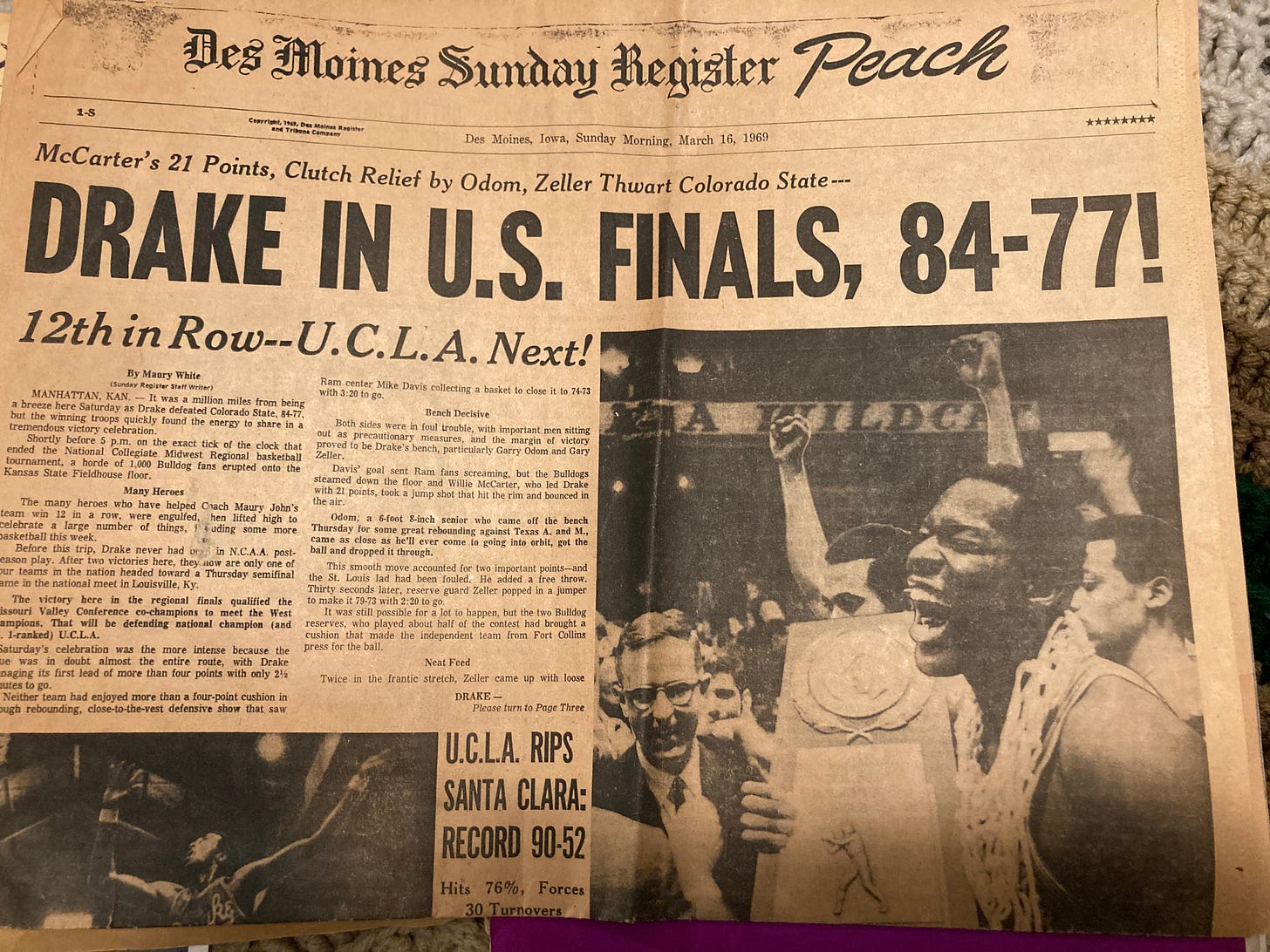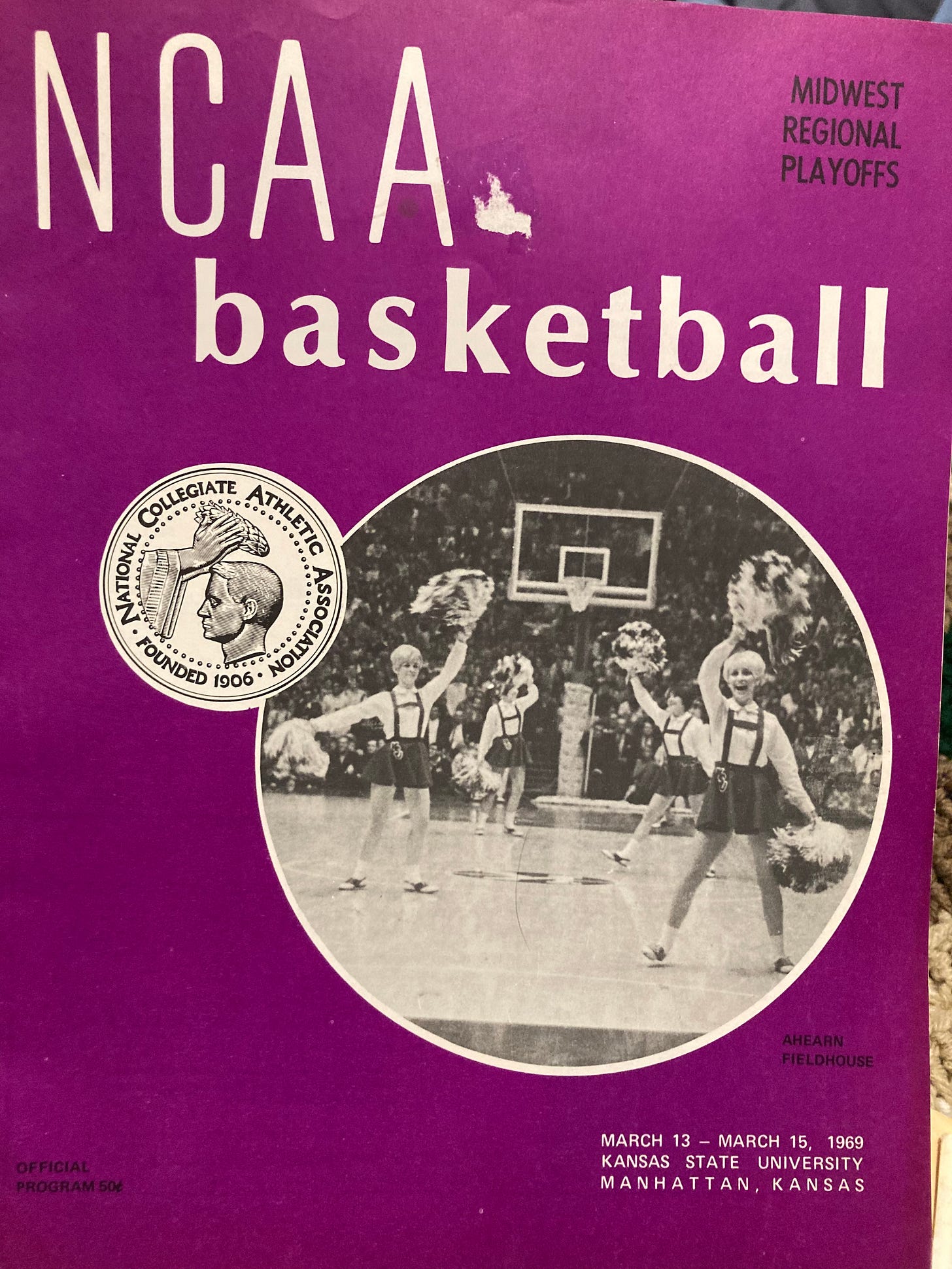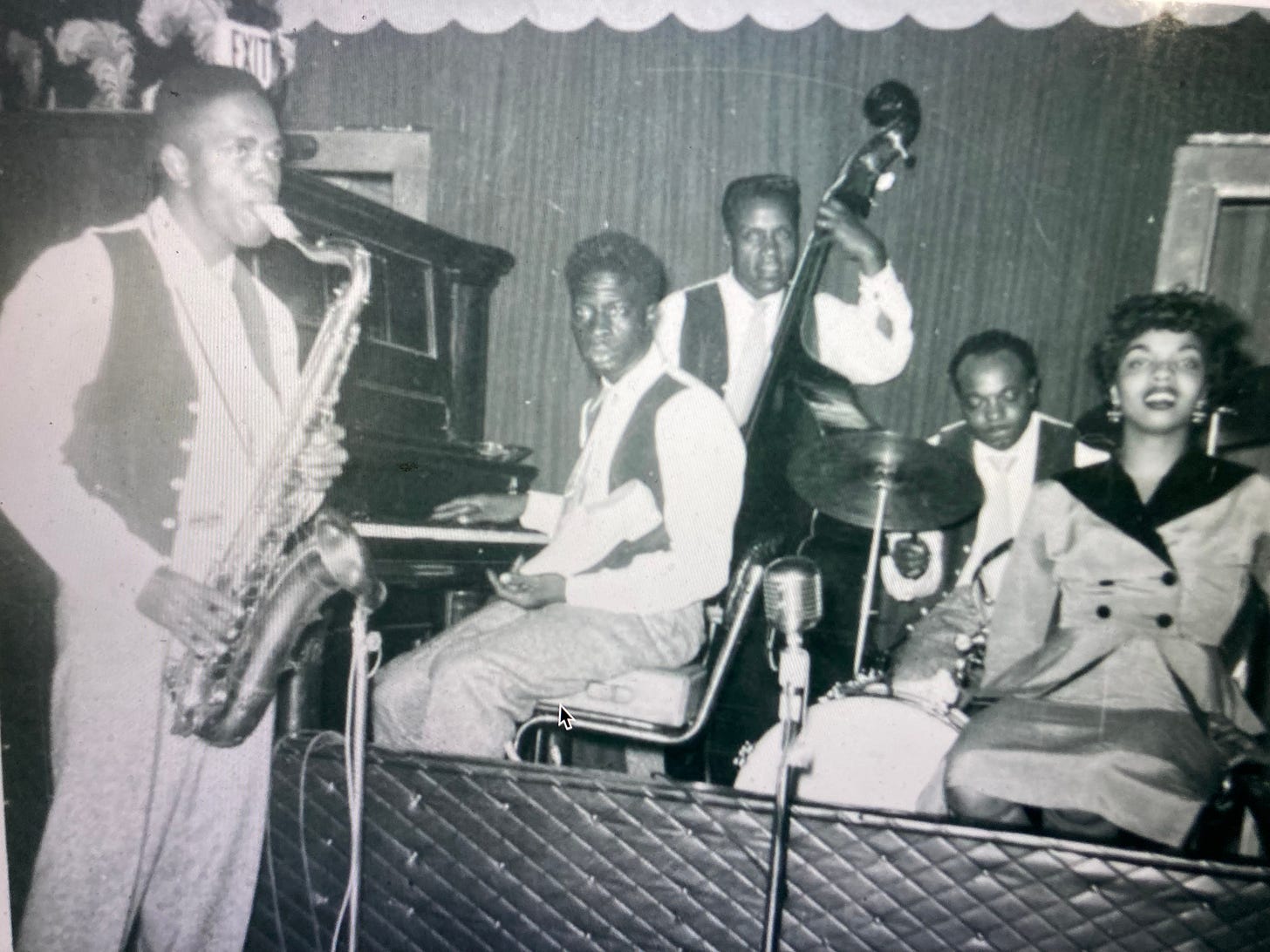I was honored to be a speaker and panelist at an important event held by Drake University. As a 1975 J-school graduate, I found myself back on campus 50 years later to address poli-sci majors on a topic super relevant to all of us connected to education.
I was set to do an intriguing show-and-tell yesterday but the technology demons prevented me from completing my edu-mission. While I couldn’t do the “PowerPoint” I constructed, I was able to communicate my still-pungent memories of 1967-1970’s Drake in a way that connected with my young audience.
Thanks to Substack, I can recreate my presentation here for my students so they can see what I was unable to display yesterday afternoon. Considering the backdrop of present-day problems, today feels eerily similar to the Viet Nam-era governmental campaigns against students who speak out. Now it extends to lawyers who defend the Constitution and the media shrinking from their position as watchdog and beacon.
The points made by the three panelists (Emily Westergaard, CEO of the By Degrees Foundation, Iowa Senator Herman Quirmbach (S.D.25) and yours truly) all reinforced the idea that education just may be the most powerful force for social change. (Which explains why there are those out there who seek to prevent you from studying certain “divisive concepts.”
I began my segment by relating some stories of my experience as a mere Freshman at Drake 1967.
• As the Drake Times-Delphic sports editor, I was sitting on the basketball court in Manhattan, Kansas when Drake University the Missouri Valley Champions of 1969, came this close to taking Lew Alcindor and UCLA down. What a team: Coach Maury John, Rick Wanamaker, Dolph Pulliam, Willie McCarter, Willie Wise, Al Williams and Don Draper
[All photography - Dartanyan Brown]
• I was at the Drake Fieldhouse in ‘67 when The Paul Butterfield Blues Band with 17-year-old Buzz Feiten on guitar, Brother Gene Dinwiddie on Tenor Sax, David Sanborn (a former University of Iowa student) on Alto, and drummer Phillip Wilson inspired me to start my first band (The Black and Blues Band) with Drake students Paul Micich, Frank Tribble, and Leon Allen.


•In April 1968, while working in the legendary sports department of the Des Moines Register, City Desk editor Howard Kluender asked me to head up to 13th and University ave. to join the team coverage of the unrest that took place after the April 4, 1968 assassination of Martin Luther King. (Wow 57 years and 5 days ago) As the only African American reporter on staff it seemed logical that I should go as the White reporters on staff were a little too freaked out to go into the area.
That unsettling event was the first non-sports story I contributed to. After that traumatic evening, I earned an upgrade to general assignment reporter covering the police beat. Later I worked with state house reporters Jerry Szumski and Nick Kotz covering the Iowa legislature.


Below are selected remarks, relevant asides and questions which I posed to the assembled group of primarily Poli-Sci majors. A great group of young leaders-in-training.
“The reason I’m here today is to urge you students to understand how really important it is for you to become educated in subjects both inside and outside of the classroom.”
The Viet Nam years here at Drake forced a reckoning as painful but necessary as the birthing process. We were thrust into the position of living up to, or abandoning the things we had been taught since we could understand our parents, our pastors or our public school teachers. It was traumatic for all of us: students, administration, parents, faculty. The entire system was pulled into the vortex. Some of the scars still remain.

In the fullness of time, our instincts biased in favor peace and justice were completely justified. Through dogged work of journalists, we learned the truth about many things that were kept from us. Especially the things that would validate the accuracy of our well-informed intuition.
So, young people, I hope you’re not too jaded to stop asking questions but to stop questioning your inner compasses’ promptings.
You have an inborn sense of right and wrong. It is strengthened by your contact with others who share that quest for a more just and sustainable society. Never let anyone kill the joy of learning for you.
During a Zoom session with the Iowa Writers Collaborative (IWC) I was highly encouraged to hear Drake’s President Marty Martin, commit to supporting all students regardless of race, color, creed or sexual orientation. He clearly understands, as most wise educators do, that equal access to effective educational opportunity makes creating that better world a much easier proposition.
The American experiment will eventually leave behind our current trumpian political reality. Start in this moment to resume Looking to the future with the aim of building a society that lives the truth of its multi-racial, multi-ethnic founding.
On Campus/Off Campus
Until the 1970’s Jazz music was frowned upon by the European Classical orientation of the Drake Music School, so music students of the 1950’s wanting to learn about Jazz had to leave Drake, drive from 25th and University to East 14th and Walker street to study Jazz improvisation with jazz masters like my father Ellsworth Brown and his friend, the pianist Ernest “Speck” Redd.
The social justice-minded Drake student of today, needs only to travel a few blocks East on Forest Ave. to Martin Luther King Blvd. There they may audit an organization dedicated since 1975 to racial and employment justice, environmental sanity and an honest, exceptionally direct approach to community action.
I’ve been a member of Iowa CCI for over a decade now but in that time, I’ve never worked with a more effective, focused, hardworking, selfless group than the hundreds of CCI members around the state and region. Rural and urban working together because they understand that when we all do better, WE ALL DO BETTER!
The American experiment has worked because education itself was built on a rigorous foundation of inquiry across disciplines. However, the decades-long attack by conservatives on the classic multi-disciplinary liberal arts education has created giant caverns of neglect. This makes it easier for those in power to break down the education community’s connective tissue of inquiry and empathy, corrupting the process that made American education a beacon for the world.
Social Justice is just an empty phrase unless you understand how it is obtained and how its presence or absence affects society. You must become educated in the ways of justice.
Everybody has a sort of hazy idea of what justice is.
Is Justice something that exists?
Is Justice something to fight for?
What does Justice feel like?
How can justice be obtained, or obstructed?
Once justice is obtained, how is it maintained?
Which brings us back to education.
If they can interrupt your education process while others continue that’s a problem.
If the state underfunds or intercedes in the maintenence of your school that’s a problem.
If they can take the fun or adventure out of your education…that’s a factor.
====
A Question for you….
How Does Social Justice manifest
In The Law
In Media
In History
In the Actuarial Sciences
In the Arts
Study the motivations of those who govern you !
Educate yourself with the goal of developing connections between you and those in your community.
Get to know your mail carrier, your waiter, your public school teachers, your fast food worker, your neighbors.
Get to know your Mayor, the policemen in your neighborhood, the city council person for your ward.
======================
I ended my remarks with an action item. Students wanted to get directly involved in learning the ways of building a more just and sustainable community. Mere blocks to the East on Forest ave. are the offices of Iowa Citizens for Community Improvement, the grassroots social justice organization that since 1975 has been there keeping hope alive.
They wanted to know what CCI is all about….
We Talk, We Act, We Get It Done!! Iowa CCI
We’re all human, no matter our Hue, man!
Sincere Thanks to Drake student coordinator Elliot Nelson and The Slay Fund for producing this fine event. A wonderful experience meeting Emily Westergaard and Senator Herman Quirmbach!










The price of freedom is eternal vigilance. Sometimes I wish it weren’t so but it’s an immutable truth. Keep on, and thank you!
Such an incredibly valuable presentation from you yesterday! It was an honor to meet you and learn about your Drake journey. Your comments on using education as an instrument for social justice were inspiring!